You can rewatch it on our Youtube channel.
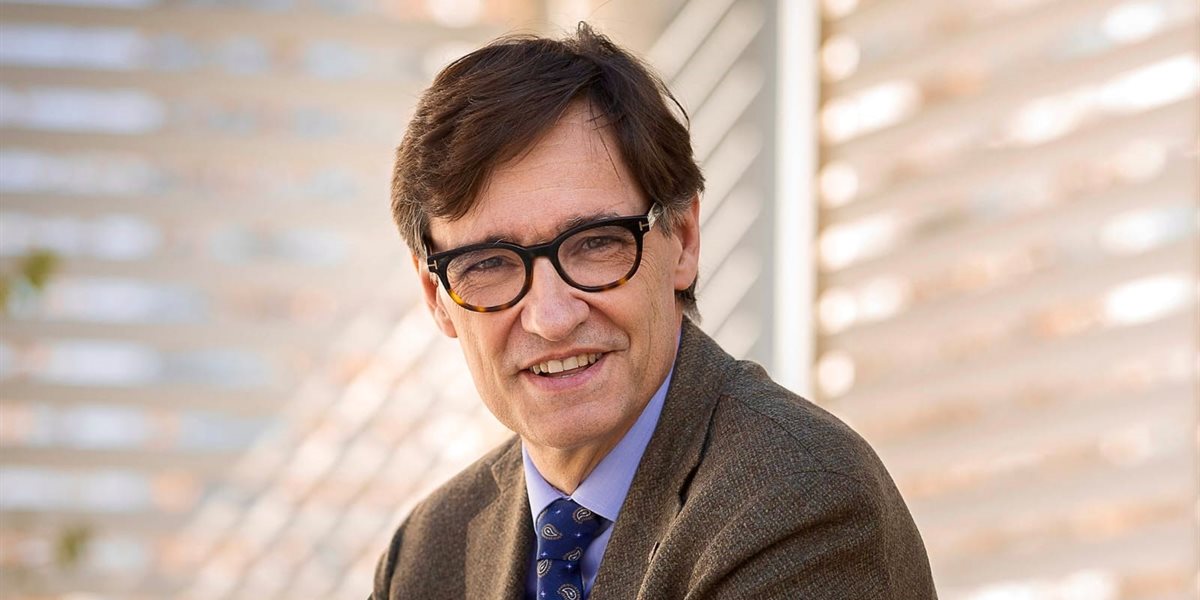
You can rewatch it on our Youtube channel.
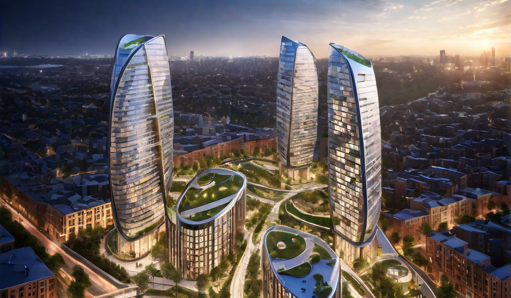
You can rewatch it on our Youtube channel.
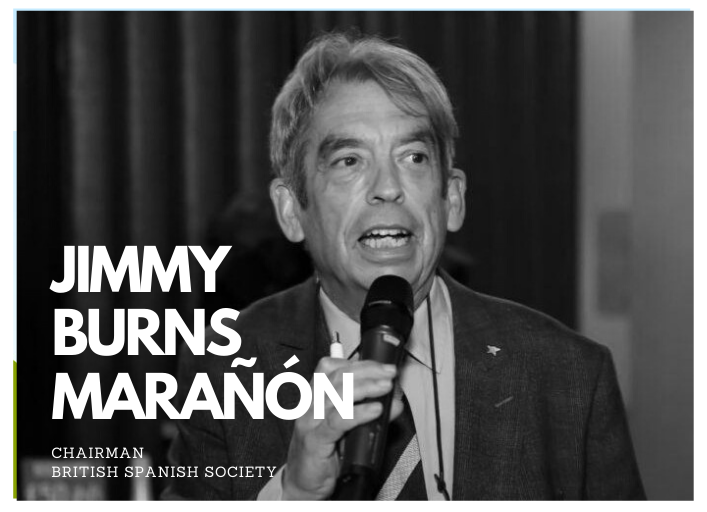
You can rewatch it on our Youtube channel.
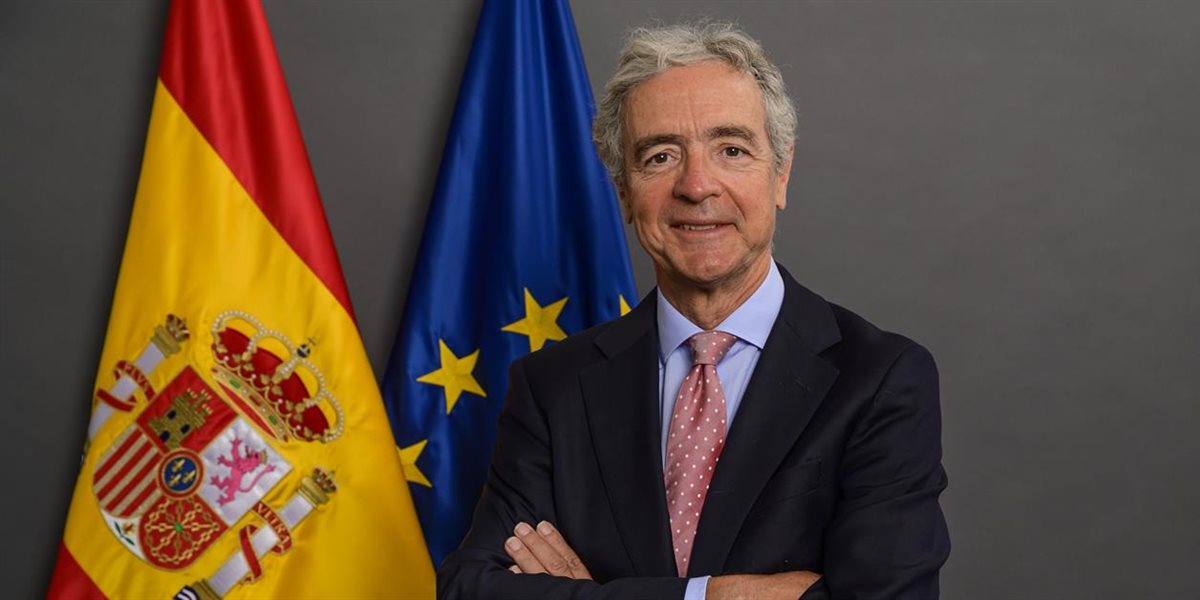
You can rewatch it on our Youtube channel.
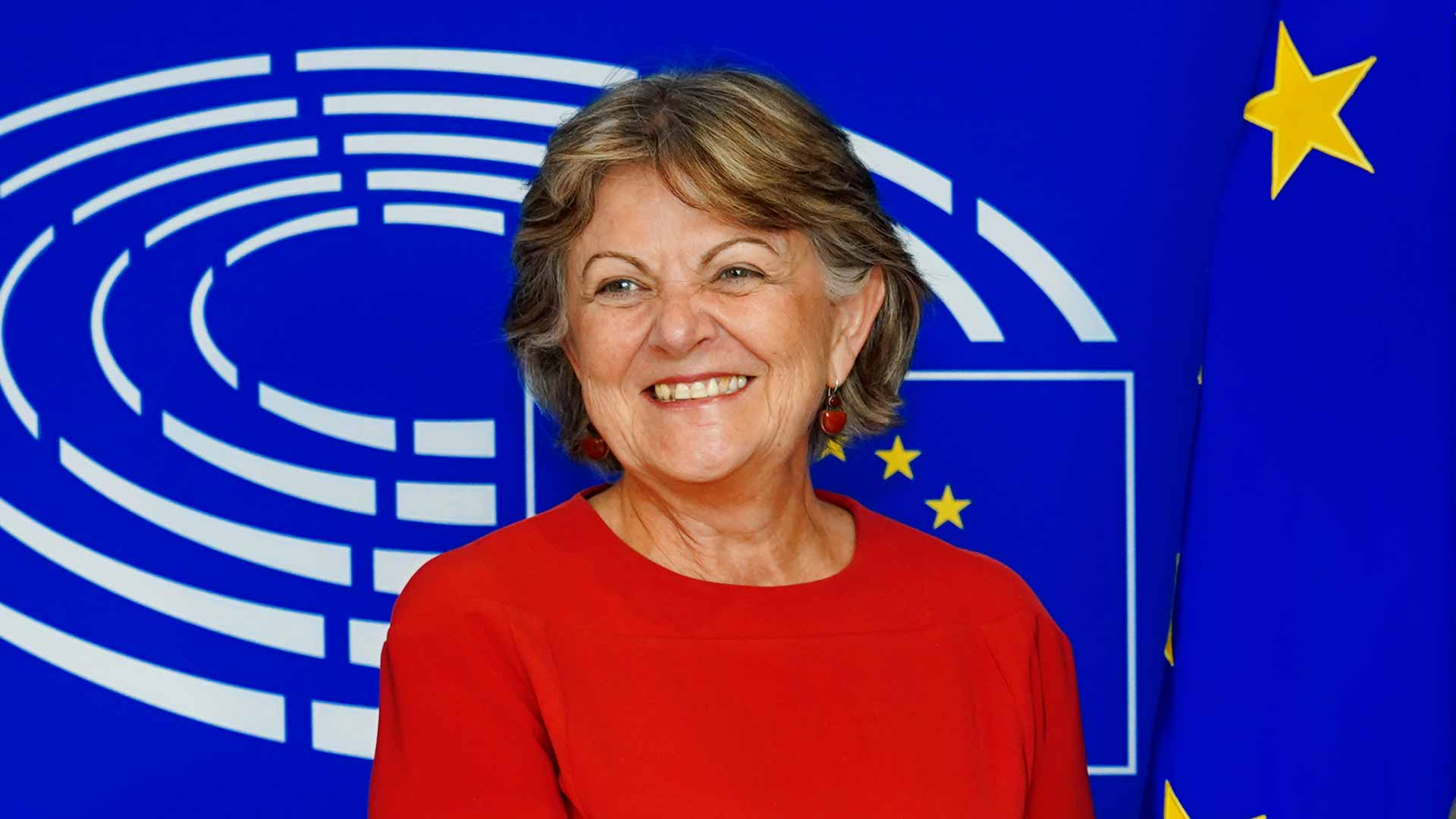
You can rewatch it on our Youtube channel.

You can rewatch it on our Youtube channel.
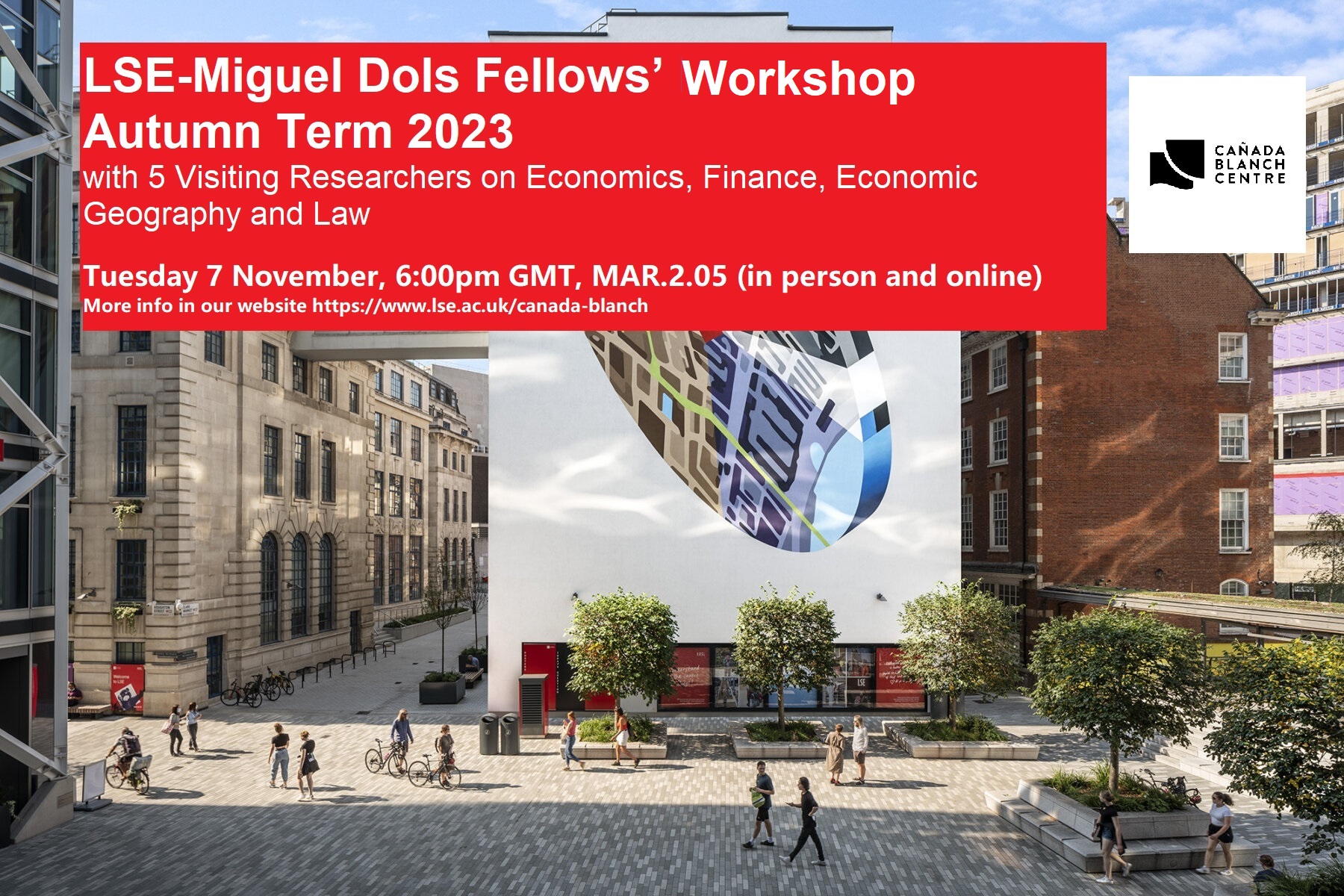
You can rewatch it on our Youtube channel.
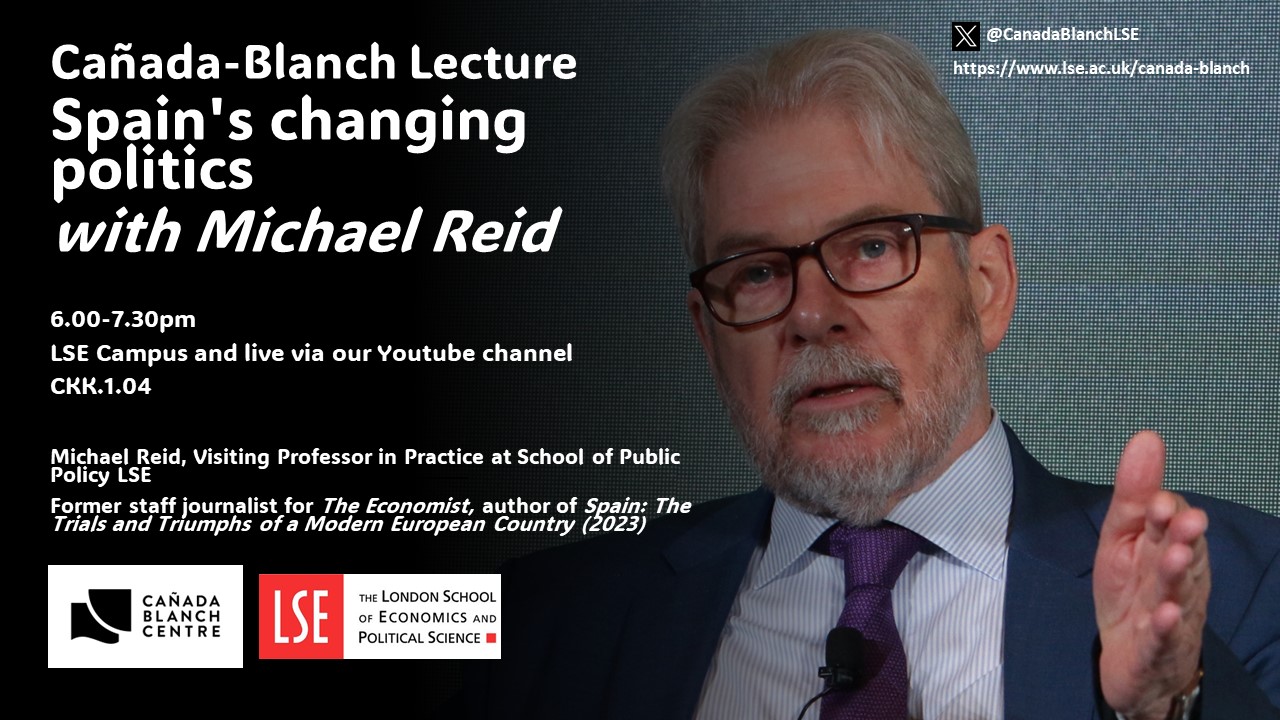
You can rewatch it on our Youtube channel.
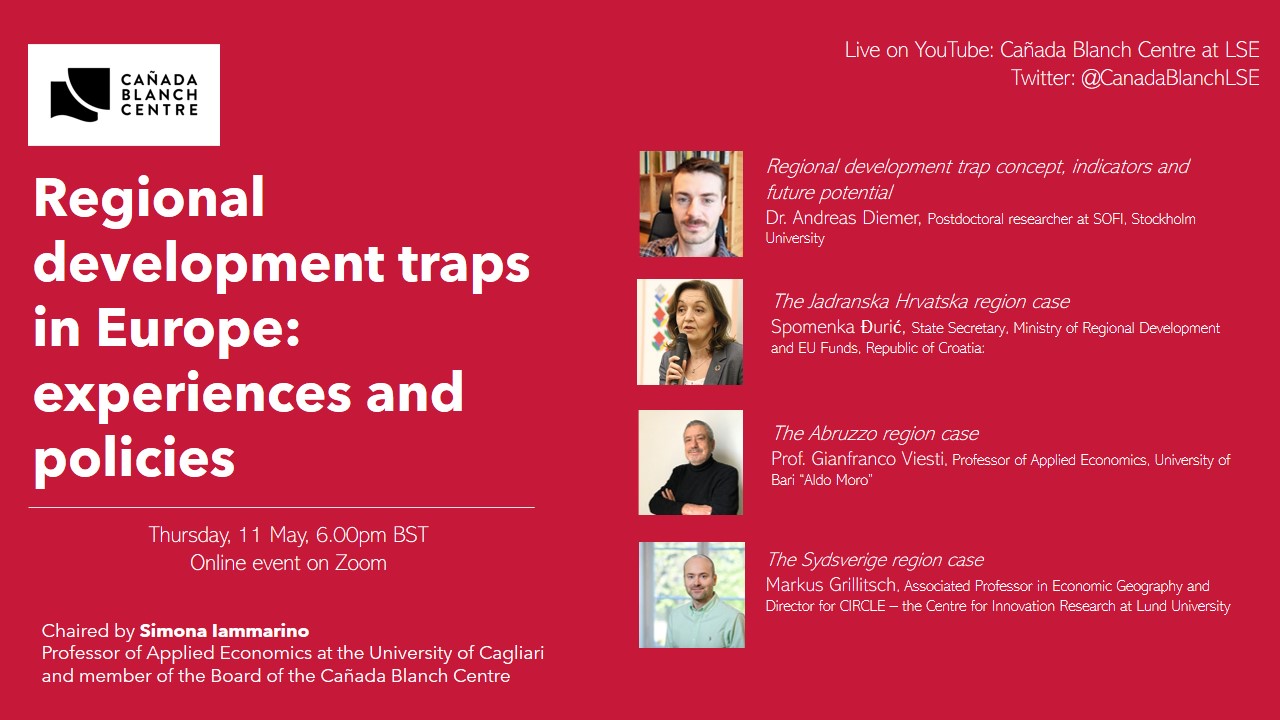
You can rewatch it on our Youtube channel.
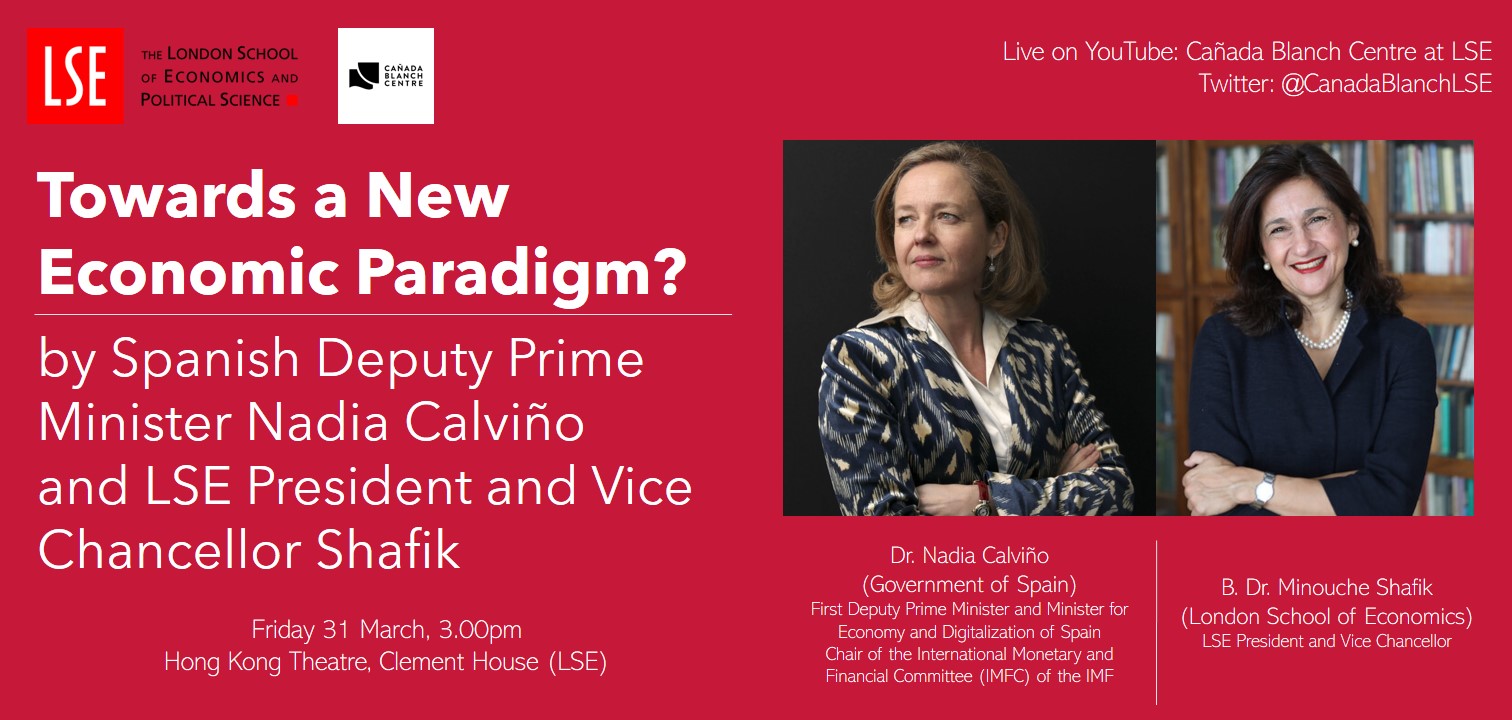
You can rewatch it on our Youtube channel.
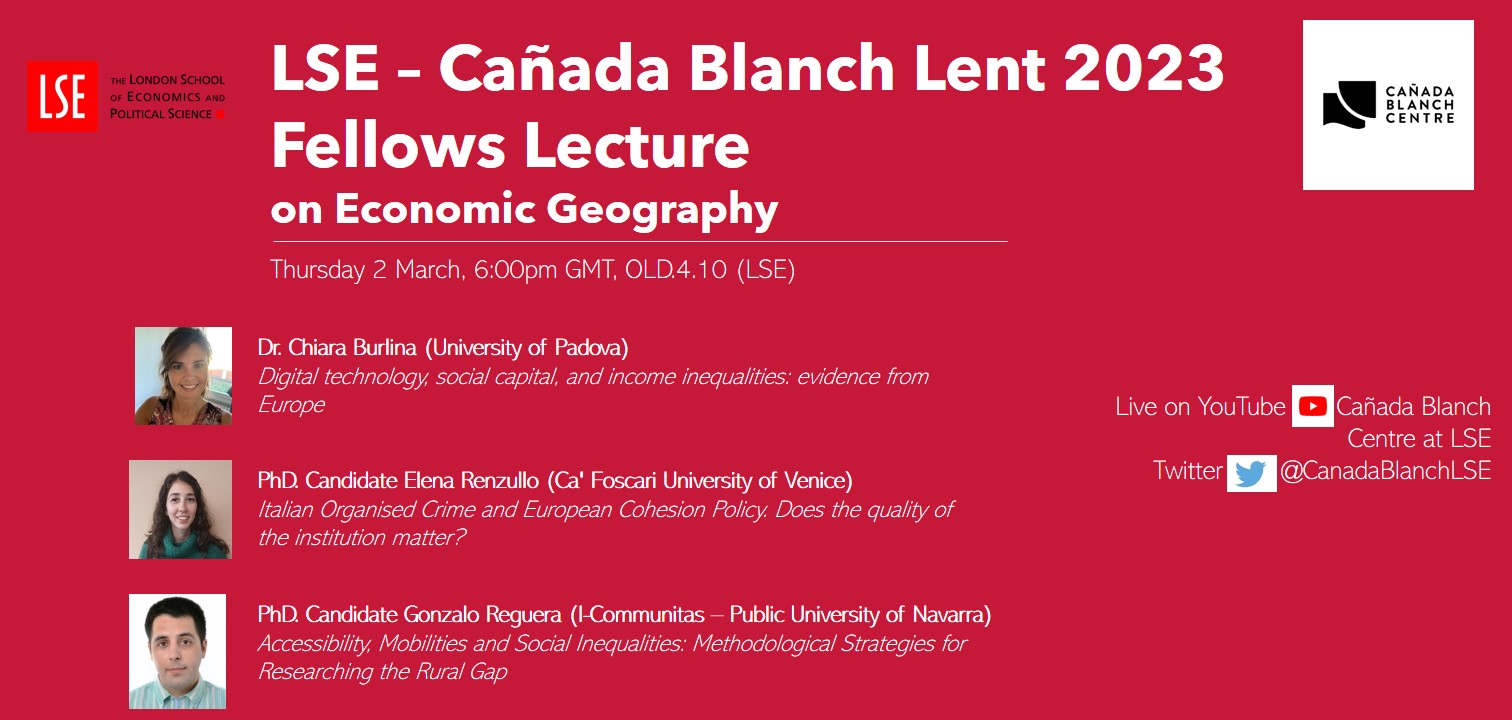
You can rewatch it on our Youtube channel.
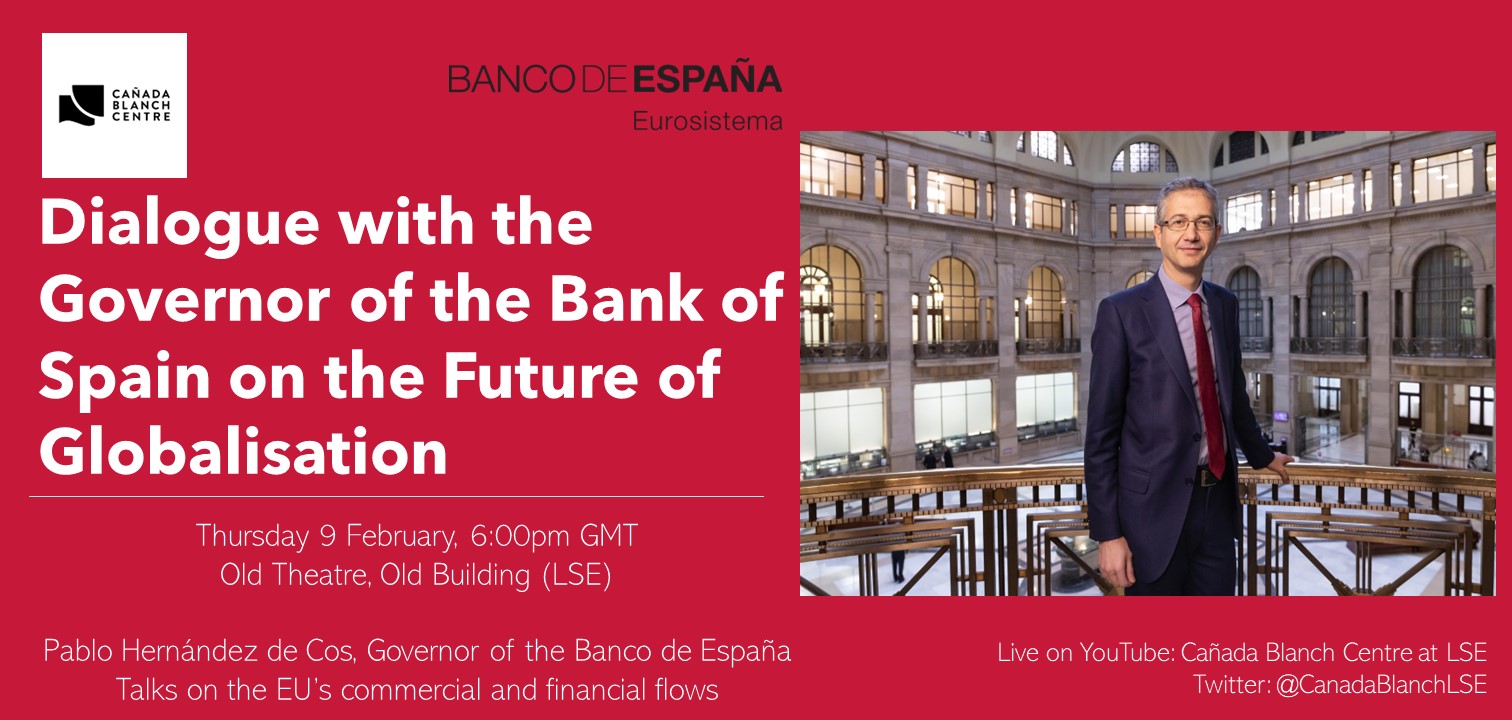
LSE – Cañada Blanch Michaelmas Fellows Lecture 2022
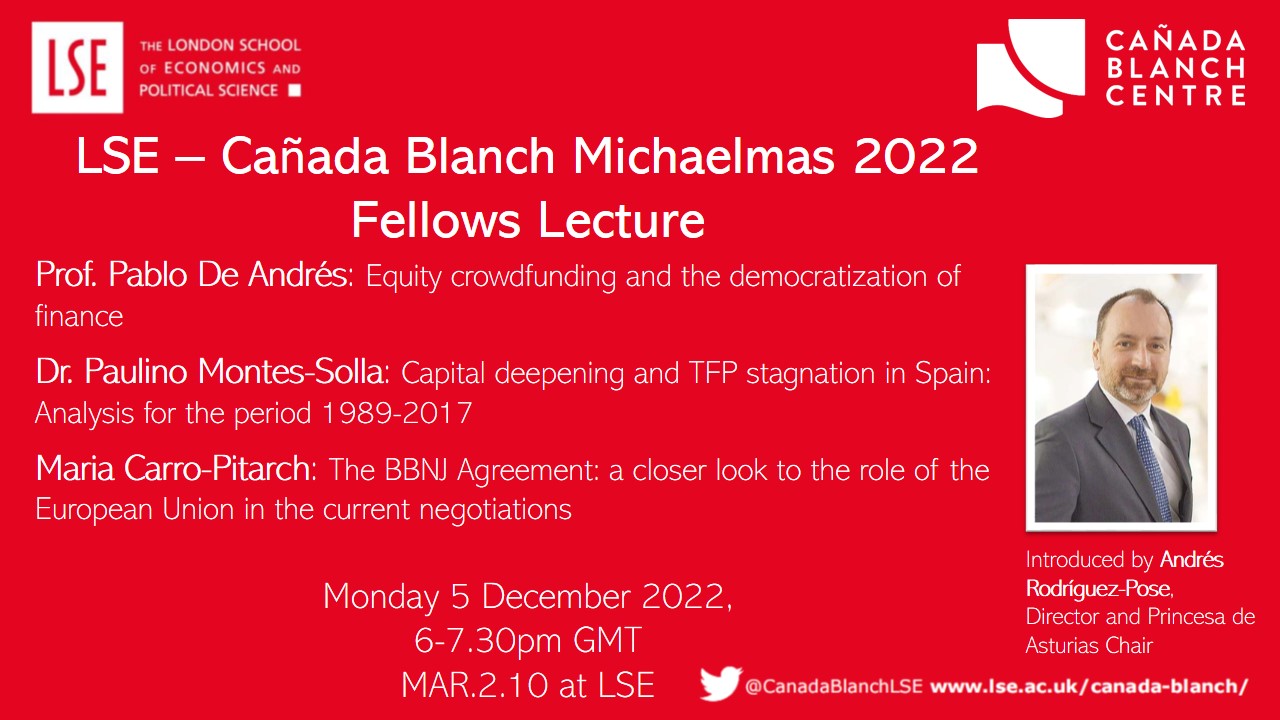
- You can rewatch it on our Youtube channel.
Cañada Blanch Lecture: Beyond Covid-19: the future of cities and urban policy by Shauna Brail (University of Toronto)
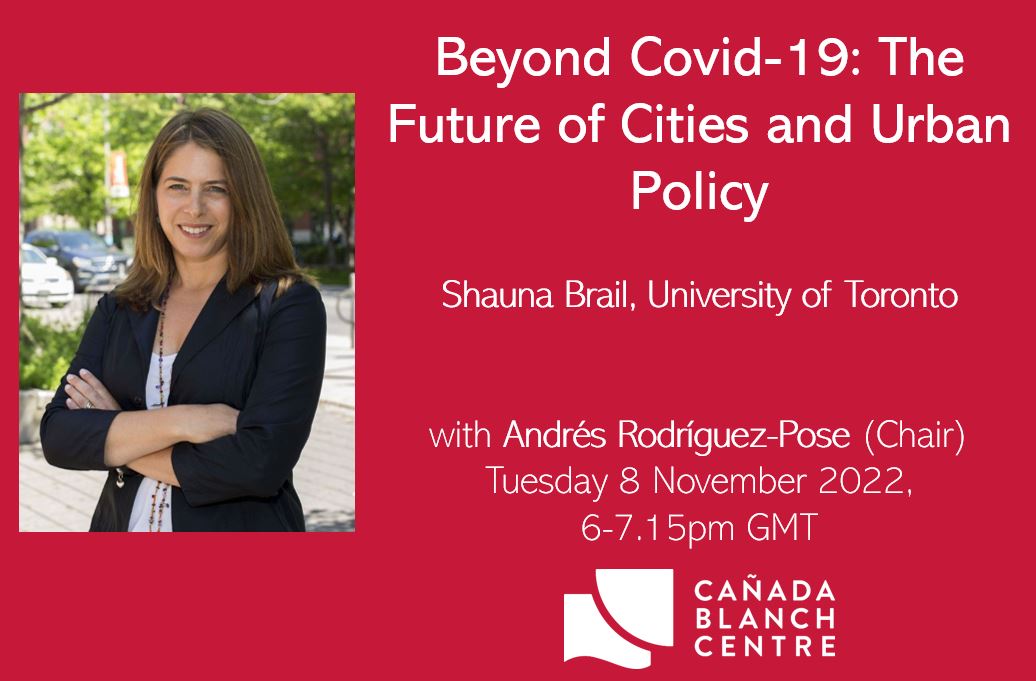
- You can rewatch it on our Youtube channel.
LSE-Instituto Cervantes Londres Lecture Series:
Rethinking the World Today: The New Business Landscape, by Prof. Mauro F. Guillén
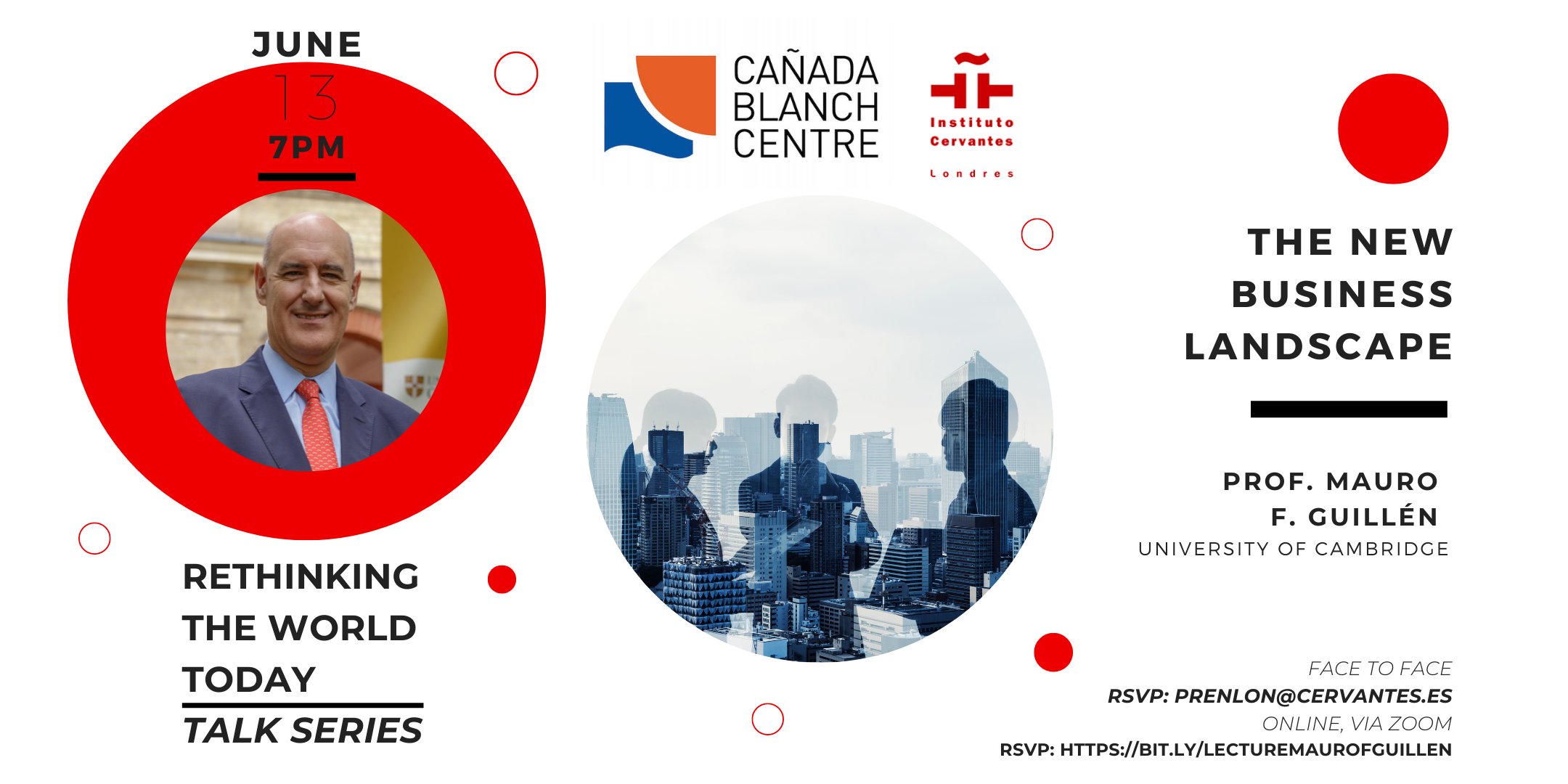
- You can rewatch it on our Youtube channel.
Cañada Blanch Lecture Summer Term 2021/2022
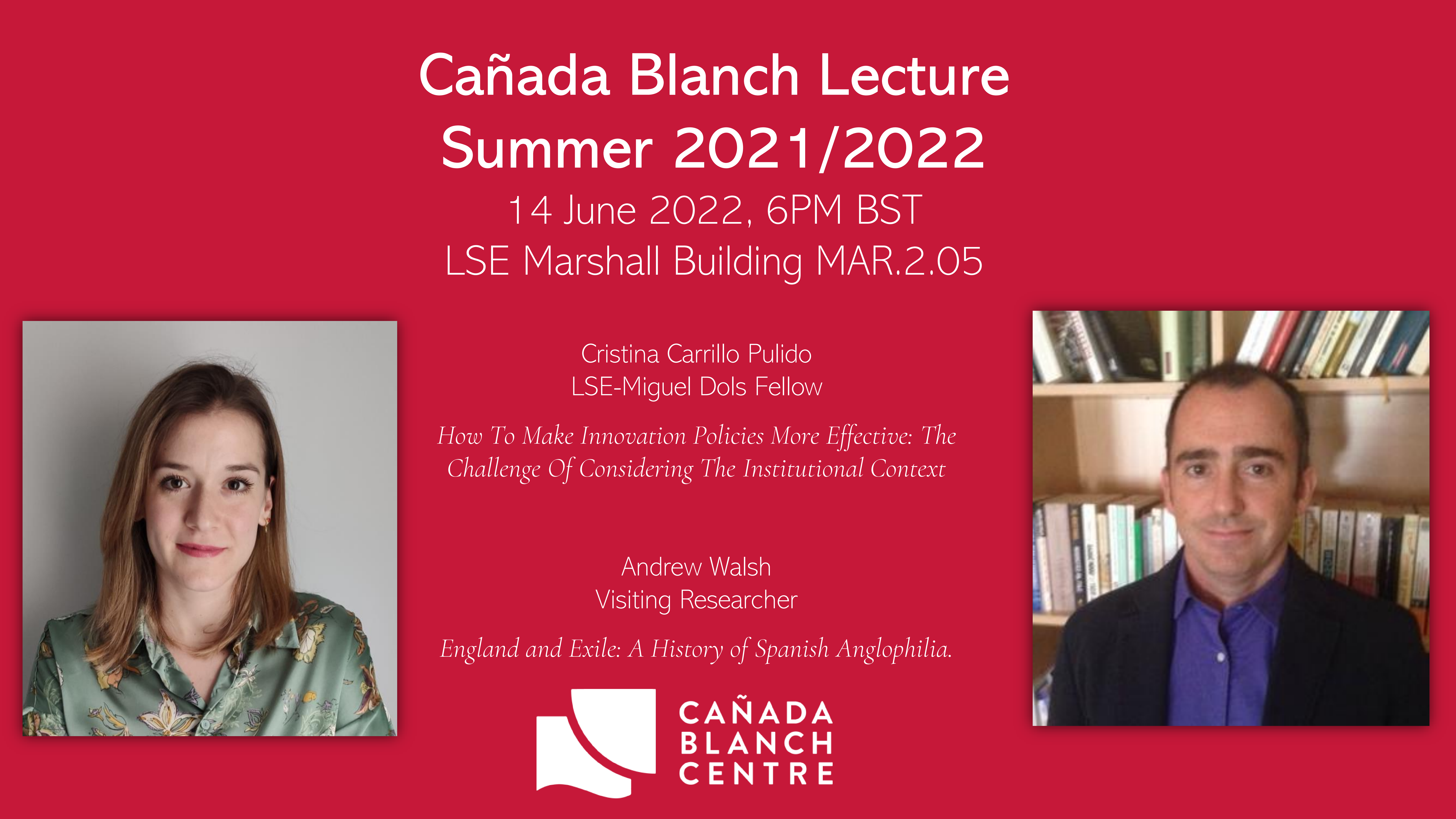
FDI in Cuba
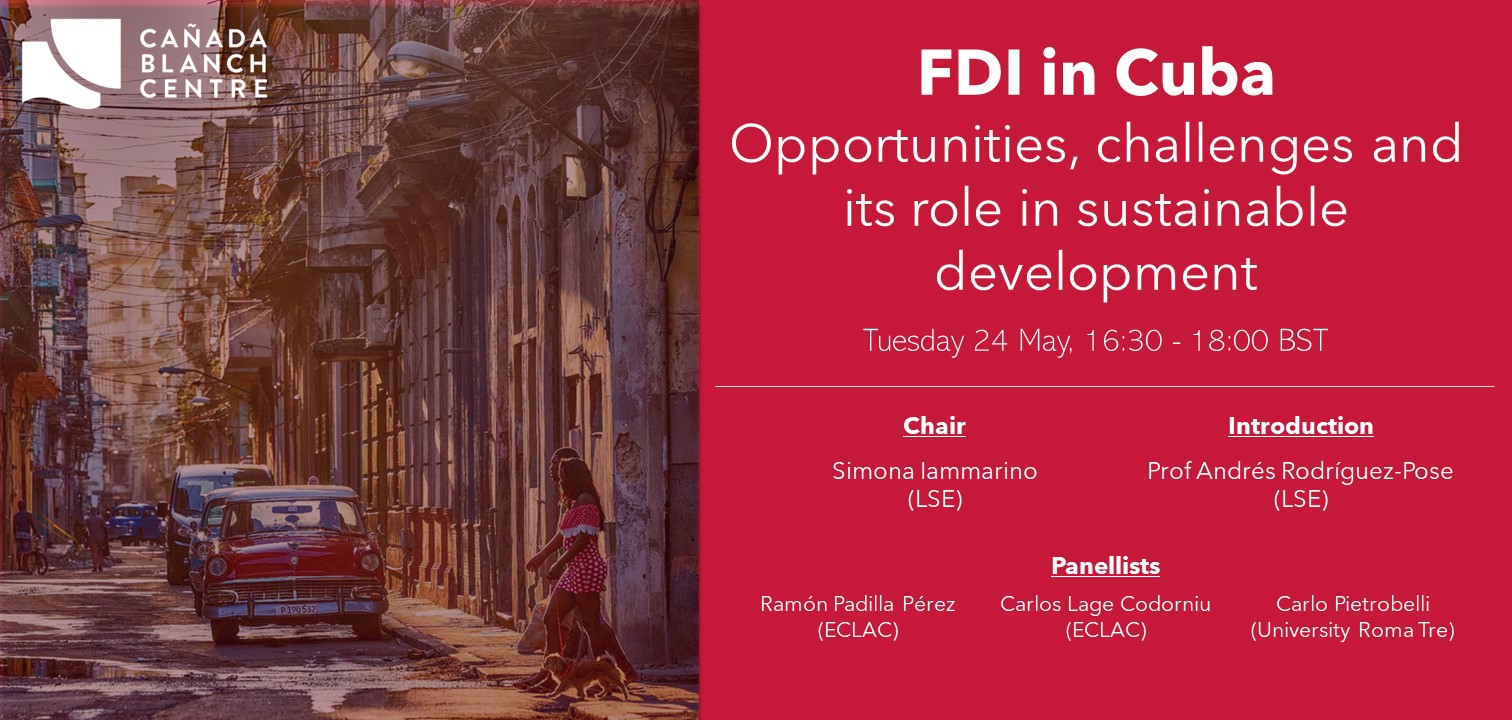
Cañada Blanch 2022 Socio-Economic Forum
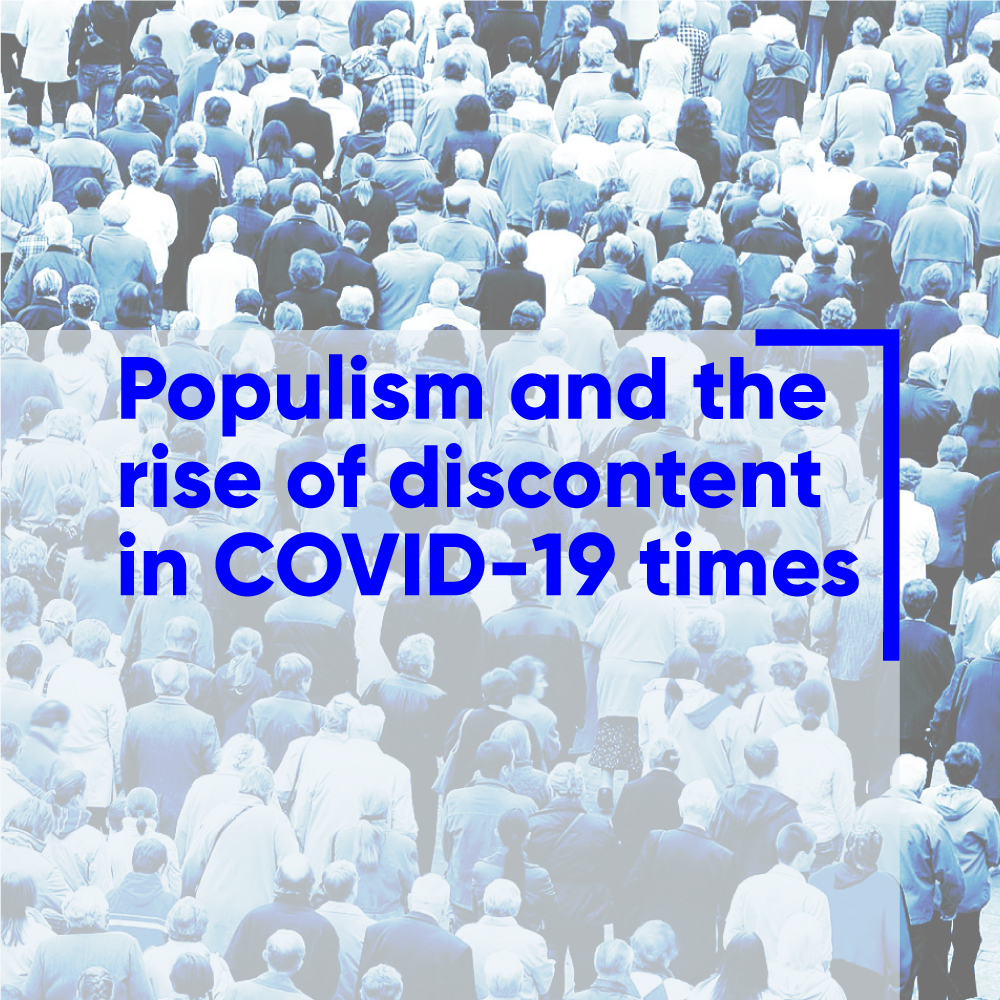
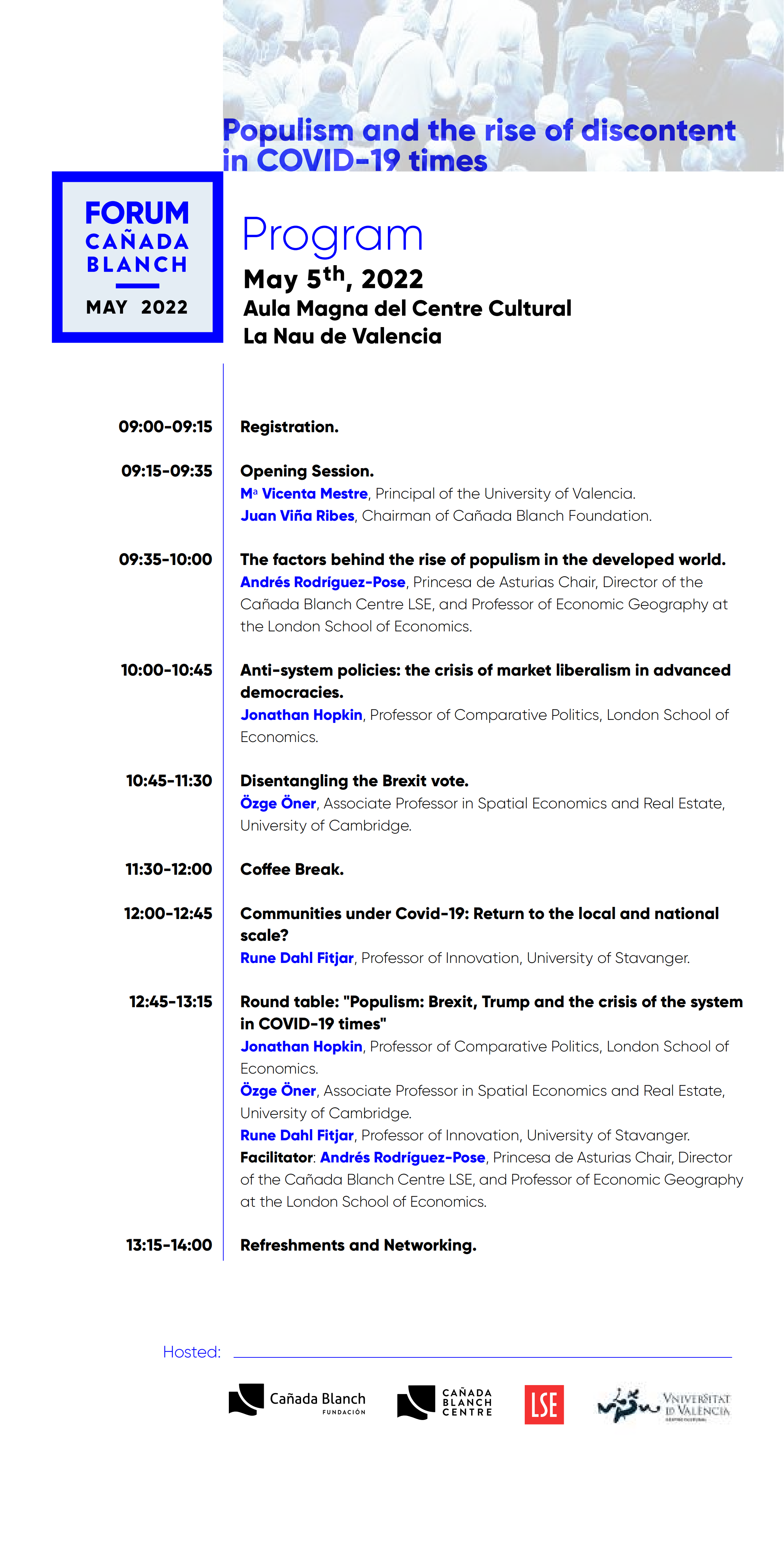
- You can rewatch it on our Youtube channel (English and Spanish).
In Conversation with Nadia Calviño Santamaría
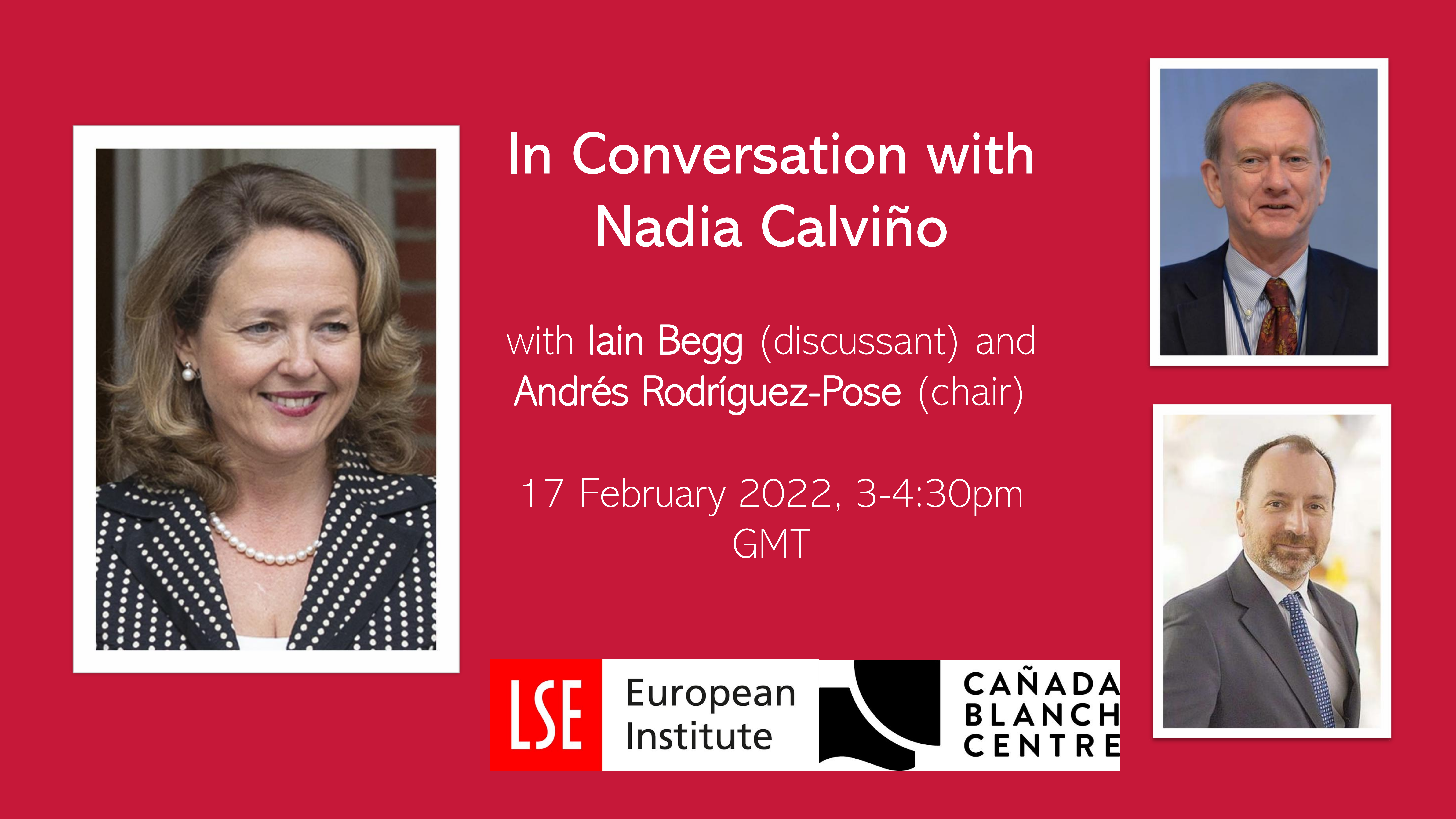
Nadia Calviño Santamaría, First Vice-President of the Government of Spain and Minister for the Economy and Digital Transformation.
- You can rewatch it on our Youtube channel.
'Regional disparities in the EU: old problems and new challenges' by Lewis Dijkstra
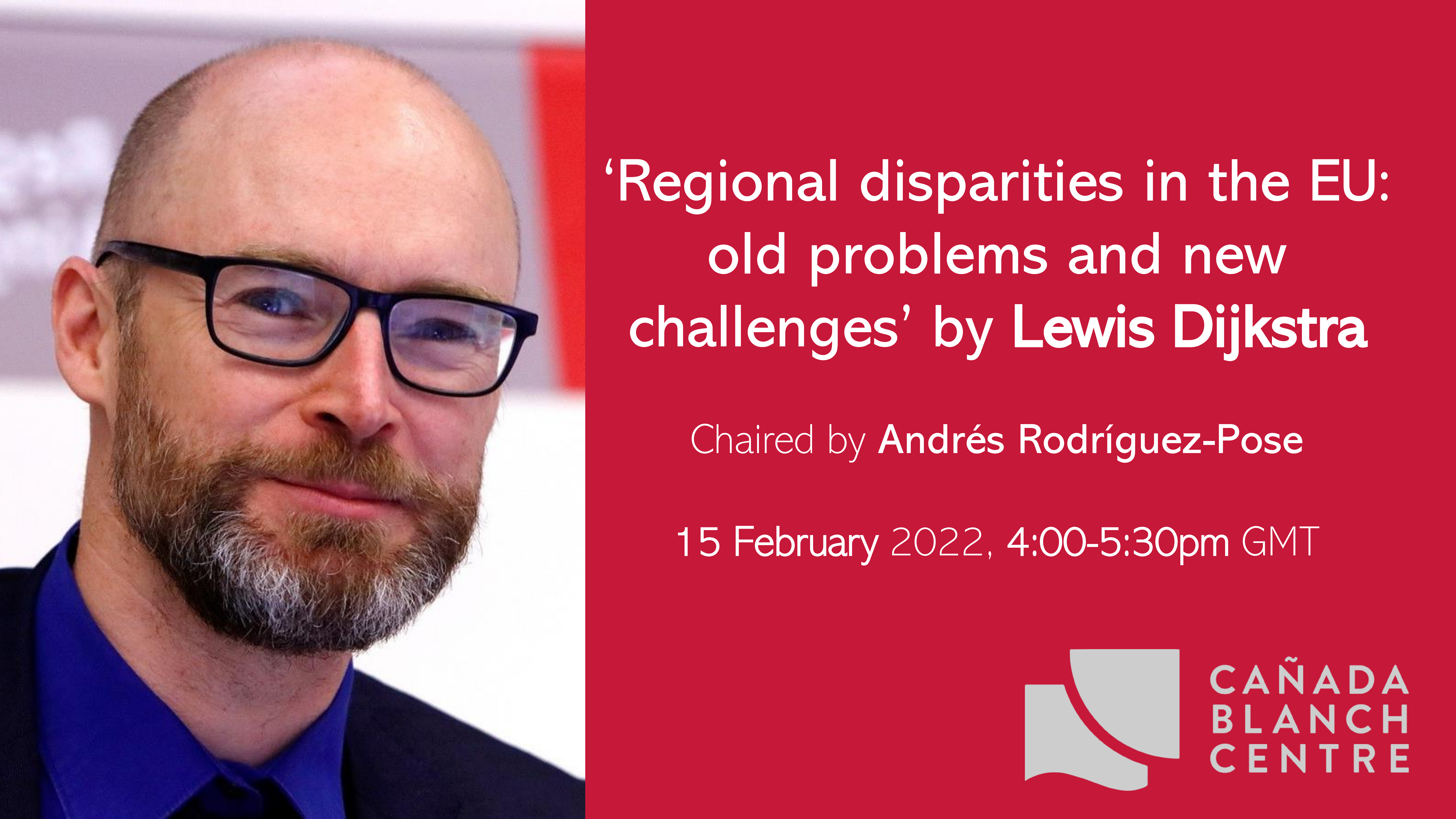
- You can rewatch it on our Youtube channel.
Cañada Blanch Lecture Lent Term 2021/2022
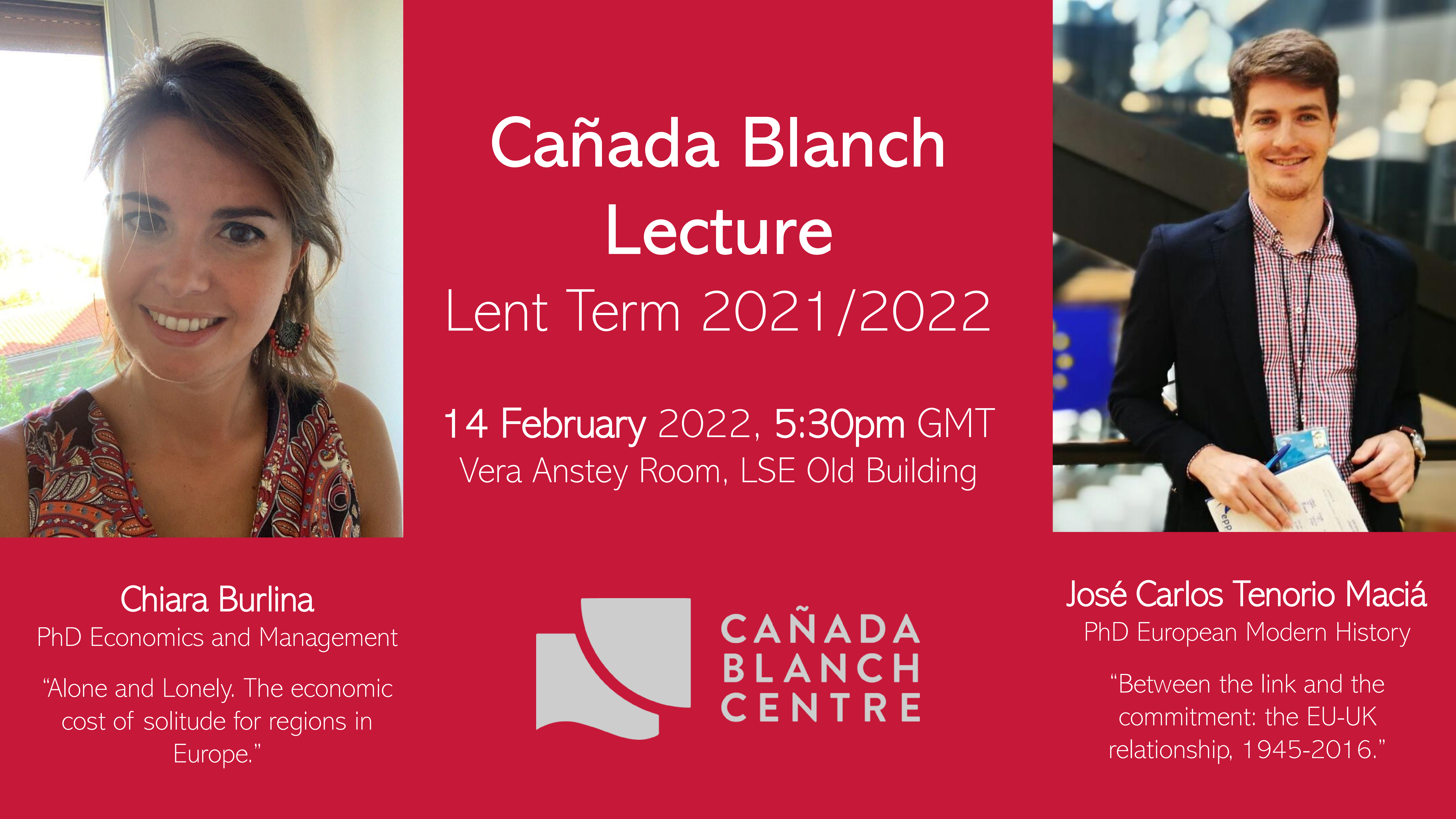
'Rethinking the World Today' Talk Series: The Oceans, 500 Years Later
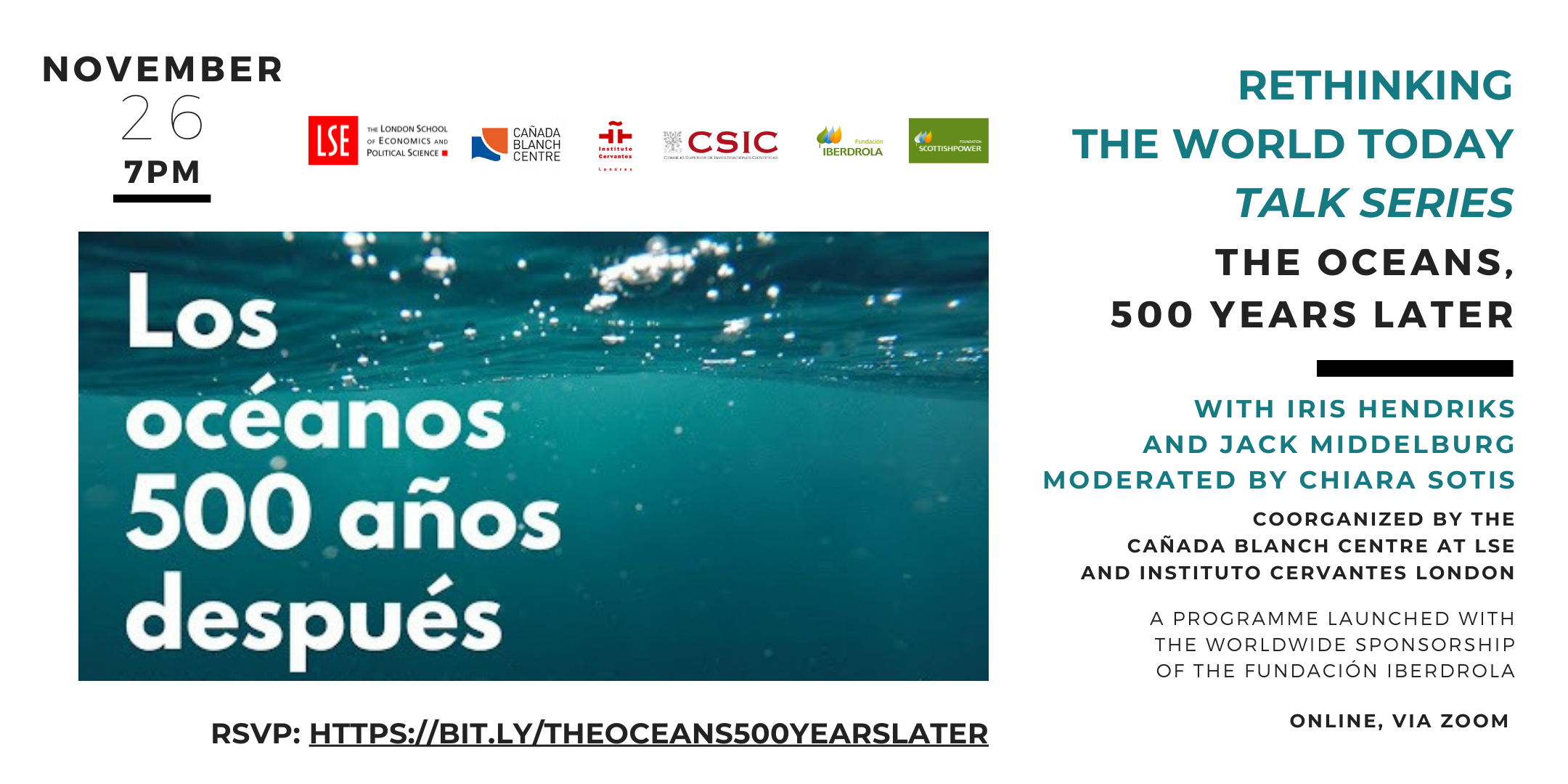
- You can rewatch it on our Youtube channel.
Cañada Blanch Lecture Michaelmas Term 2021
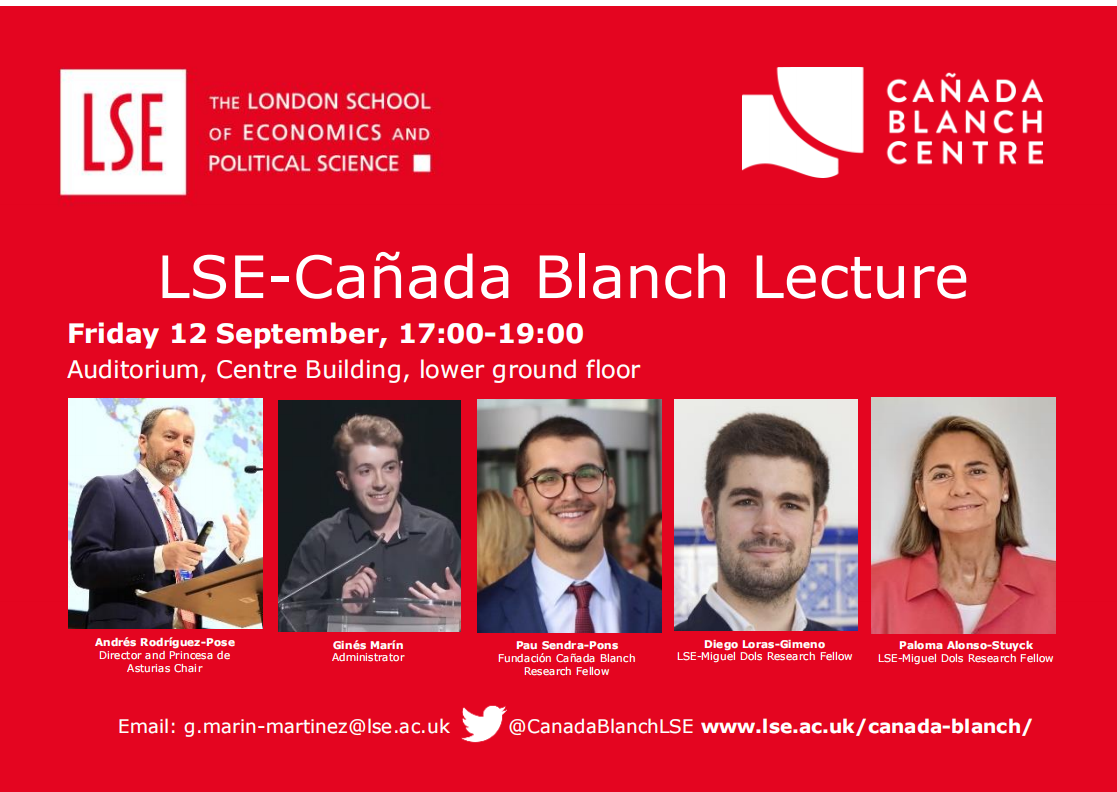
Date: Friday 12 November 2021
Location: LSE Auditorium (LSE Centre Building, lower ground floor)
The LSE-Miguel Dols Fellows for the Michaelmas Term 2021 and the winner of the Fundación Cañada Blanch – Universitat de València 2019 Award, share with us the research they have been developing during their time at the LSE.
- Pau Sendra-Pons talked about his research on crowd-based entrepreneurial fundraising.
- Diego Loras-Gimeno discussed how the urban-rural gap affects inequality and poverty in Spain.
- Paloma Alonso-Stuyck shared her design for a workshop to incorporate the teaching of healthy habits and interpersonal relationships into university.
Cañada Blanch Forum 2021: 'Cities and Regions in a post-Covid world'
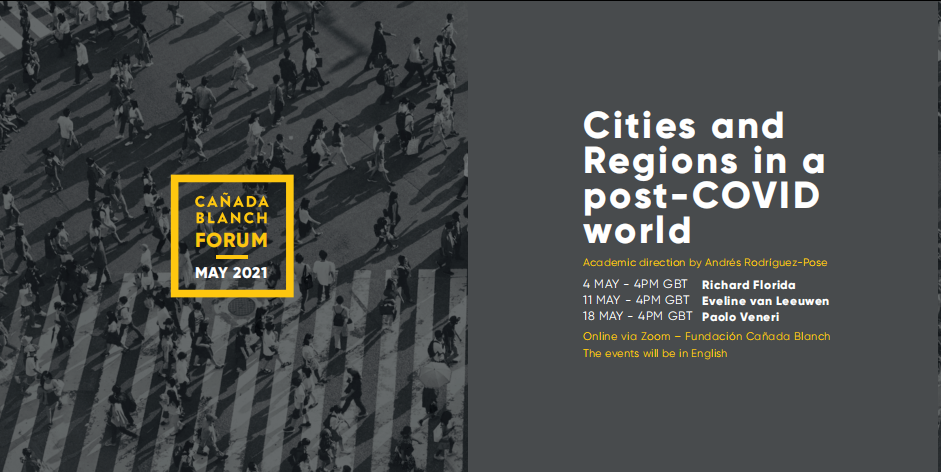 Cities and Regions in a post-COVID world event.
Cities and Regions in a post-COVID world event.
The Cañada Blanch Forum is the annual flagship event of the Cañada Blanch Centre, analysing and debating economic and social topics of global scale.
Dates: 4, 11 and 18 May 2021, at 4pm GBT
Location: Zoom
Chair: Andrés Rodríguez-Pose
Sign up: https://zoom.us/meeting/register/tJwlfuCrpzMoH9KEY1vfnGpoknAJ9NMMhgi7
LinkedIn event page: https://www.linkedin.com/events/ca-adablanchforum20216789876392927518720/
'Cities in a post-Covid world'
The COVID-19 pandemic will have significant economic, fiscal, social and political implications for cities and metropolitan regions. Richard Florida will assess the effect of the pandemic on urban economic geography at the intra- and inter-regional geographic scales in the context of four main forces: the social scarring instilled by the pandemic; the lockdown as a forced experiment; the need to secure the urban built environment against future risks; and changes in the urban form and system. He will argue that, at the macro-geographic scale, the pandemic is unlikely to significantly alter the winner-take-all economic geography and spatial inequality of the global city system. At the micro-geographic scale, however, it may bring about a series of short-term and some longer-running social changes in the structure and morphology of cities, suburbs, and metropolitan regions.
Richard Florida is one of the world’s leading urbanists. He is a researcher and professor, serving as University Professor at University of Toronto’s School of Cities and Rotman School of Management, and a Faculty Chair at NYU’s Schack School of Real Estate.
He is a writer and journalist, having penned several global best sellers, including the award winning The Rise of the Creative Class and his most recent book, The New Urban Crisis. He is co-founder of CityLab, the leading publication devoted to cities and urbanism.
He is an entrepreneur, as founder of the Creative Class Group which works closely with companies and governments worldwide.
'Bringing the urban into the rural and vice-versa? How COVID-19 changes our views on space and distance'
COVID-19 is leading to the revaluation of space and distance. Indoors and outdoors space, both in private and public areas, has become not only more visible, but also more important. The shift to online meetings, online shopping, exercising, music-making and the like is heralding the death of distance and making many of the former advantages of cities turn into potential disadvantages. This has led, in many countries, to increased urban-rural migration flows and to a reorientation of location choices of companies.
In many ways, the pandemic is bringing the rural into the urban —by leading to reactions, such as 'support the local' campaigns’, increases in local expenditure, or creating green space and city-region food-systems— and the urban into the rural, through more (digital) innovation and the relocation of highly skilled workers to rural areas. Something we could all benefit from.
Eveline van Leeuwen is the Scientific Director of the Amsterdam Institute for Advanced Metropolitan Solutions (AMS). AMS is a public-private institute founded in 2014 by Wageningen University & Research (WUR) and Delft University of Technology (TU Delft), together with Massachusetts Institute of Technology (MIT). Eveline also holds a Chair of Urban Economics at WUR and is the Vice President of the European Regional Science Association (ERSA). She is also a member of the OECD Expert Advisory Committee on Rural Innovation, of the Scientific reflection group on population decline of the Dutch Ministry of Internal Affairs and of the International Advisory Board (IAB) of the Amsterdam Economic Board. She previously taught at the VU University Amsterdam.
'Regional disparities in a post-pandemic world'
The webinar will focus on how the current pandemic and other megatrends —including digitalisation, ageing, climate change and urbanisation— are affecting regional disparities in economic conditions and well-being in OECD countries. The presentation will highlight how different factors of resilience to external shocks are distributed across regions and cities, with possible implications for changing regional disparities. Among the aspects considered in the presentation are the potential for remote working and the impact of digitalisation, the preparedness of health systems to face crises, the changing economic structure, and environmental conditions.
Paolo Veneri is the Head of the Regional Analysis and Statistics Unit at the OECD Centre for Entrepreneurship, SMEs, Regions and Cities. His work covers several topics connected to urban and regional development, including understanding and measuring urbanisation, well-being and spatial inequalities. He led several OECD flagship publications including “Cities in the World. A New perspective on urbanisation” (2020), “Regions and Cities at a Glance”, “Divided Cities” (2018), “The Geography of Firm Dynamics” (2017), “Making cities work for all” (2016), “How’s Life in your Region?” (2014) and “Rural-urban partnerships: an integrated approach to economic development” (2013). He holds a PhD in Economics and he has published numerous papers in academic journals within the field of urban economics and regional studies.
"Rethinking the world today", with the Cervantes Institute London
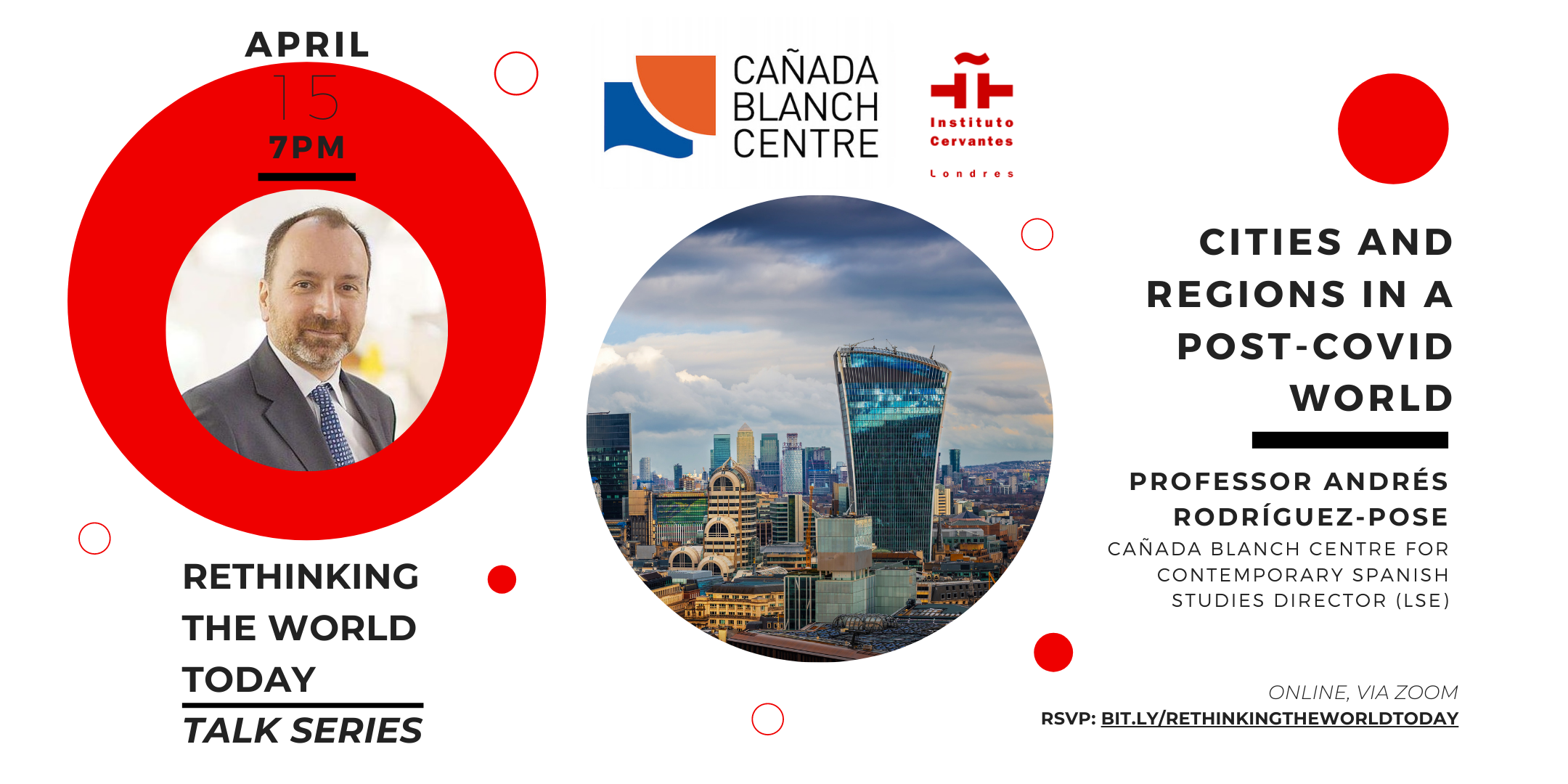
Date: Thursday 15 April 2021
Location: Virtual
Professor Andrés Rodríguez-Pose, the Centre's Director, will launch the talk series titled 'Rethinking the World Today', a collaboration between the Cervantes Institute and the Cañada Blanch LSE Centre.
This talk assessed the role of three pandemic-related forces—the social scarring instilled by the pandemic; the lockdown as a forced experiment; and the need to secure the urban built environment against future risks—in this transformation both at the macro- and micro-geographic scale.
It was argued that, at the macro-geographic scale, the pandemic is unlikely to significantly alter the winner-take-all economic geography and spatial inequality of the global total system. At the micro-geographic scale, however, it may bring about a series of social changes in the structure and morphology of cities, suburbs, and metropolitan regions. The durability and extent of these changes will depend on the timeline and length of the pandemic.
If you missed it, you can watch it here:
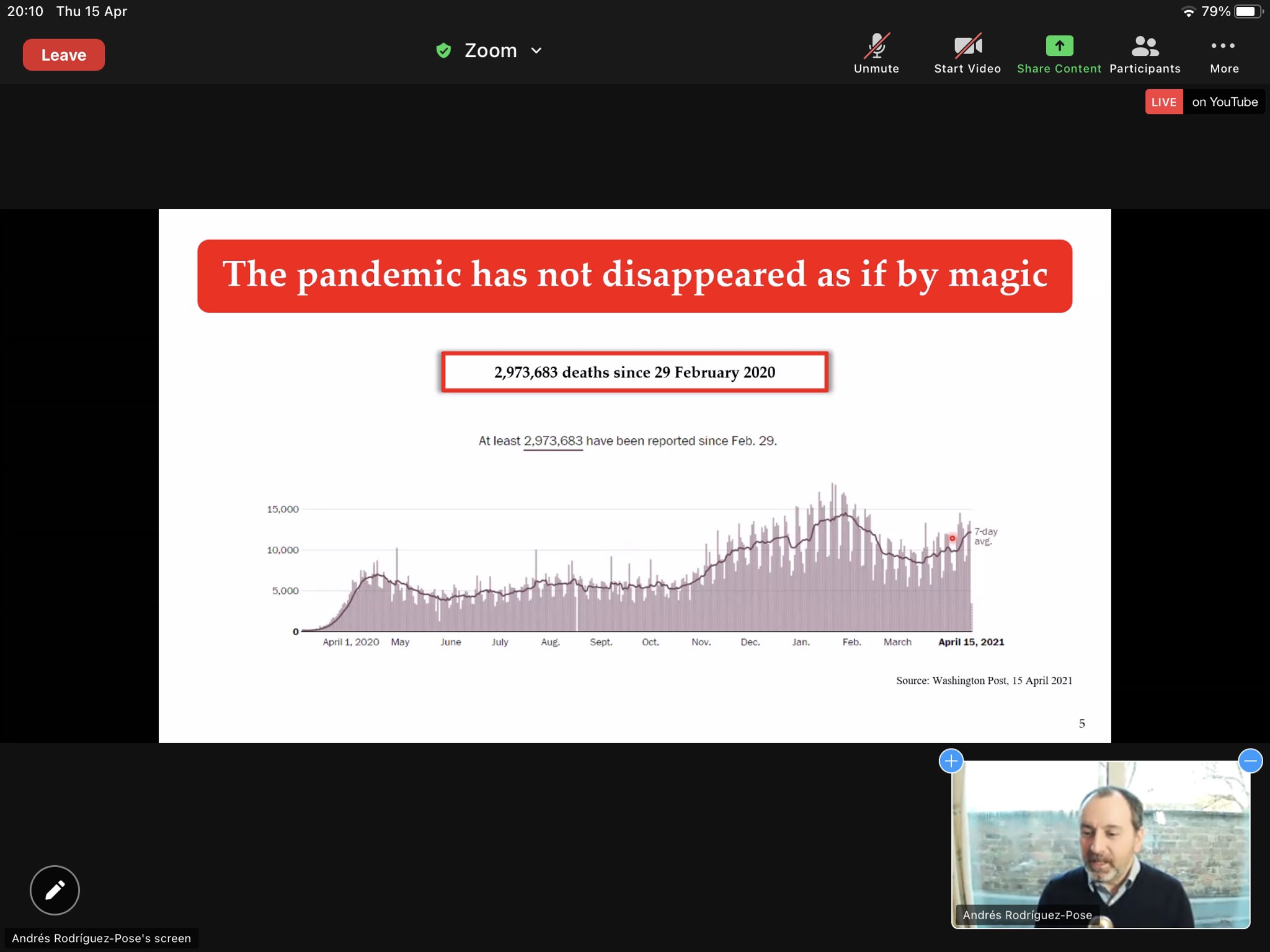 Event recording
Event recording